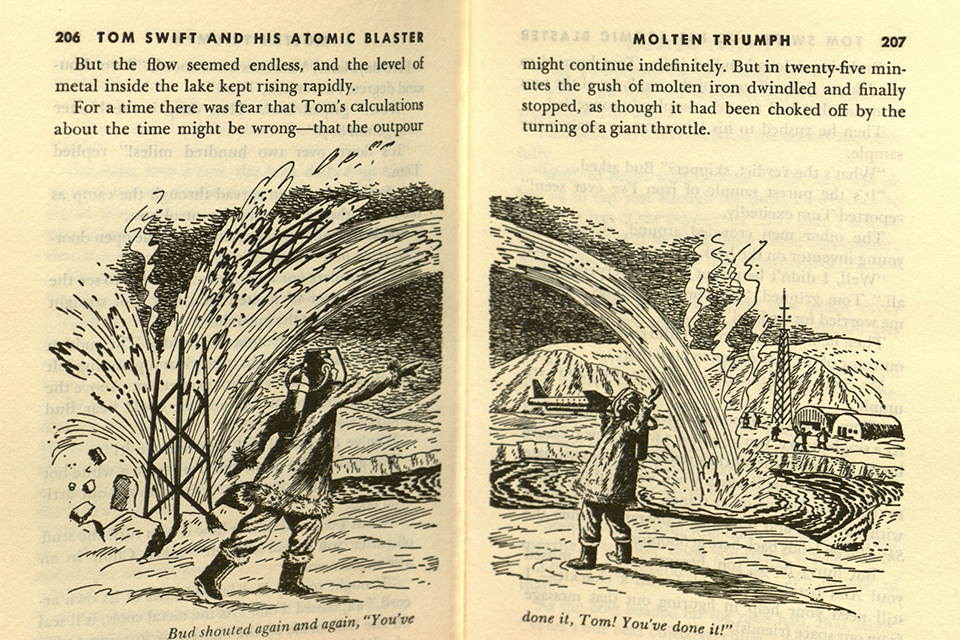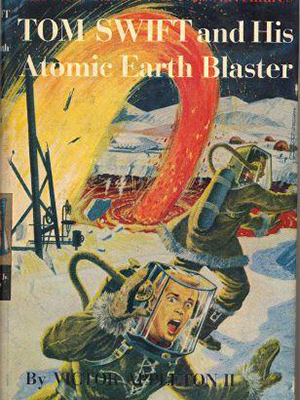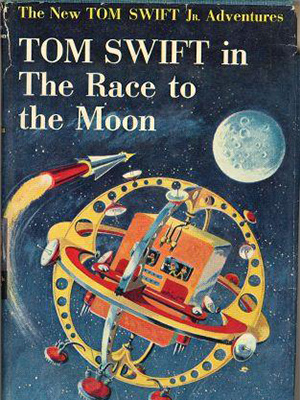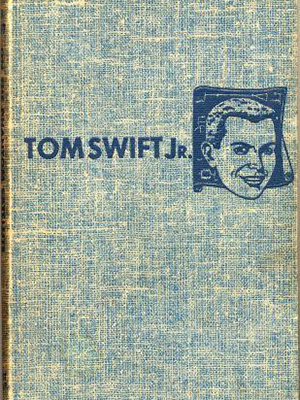Tom Swift, Jr.

In Tom Swift, Jr., Victor Appleton, Jr., adds an Eisenhower-era spin to the problem of heroes and money. Swift is an 18-year-old inventor-patriot who uses his talents to outfox suggestively named enemies like the Brungarians and Kranjovians. He decodes a message from outer space in a couple of days, builds an atmosphere spreader (for putting atmosphere where it isn’t) overnight and troubleshoots a faulty repelatron (his replacement for rocket power) the afternoon before he uses it to fly to the moon.
Naturally, he is rewarded for his brilliance with wealth (his father, Tom Swift, Sr., owns an island, about 20 jets and, if my geography is correct, most of the northern seaboard), but Appleton has a different challenge from either Optic's or Alger's: wealth or no wealth, Tom must be middle-class. Appleton therefore introduces red herring villains — American men who have inherited more wealth than Tom and his father have earned — who function as safety valves for the anti-upper-class bias. This, then, provides Tom with competitors who, as the sad end of the aristocratic tradition, cannot compete with him.
The stories follow him from one success to the next, building suspense not from danger and the threat of violence, but from anticipation about Tom’s next great achievement.
But all this success has a noticeable downside for the hero. When, through circumstances beyond his control, he cannot invent, troubleshoot or produce the next great thing, he gets bored. In Tom Swift, Jr. and the Race to the Moon (1958), he and his best bud, Bud, find themselves marooned in space, with no hope of being found before their oxygen runs out. What is the great problem they face in the interim? How to pass the time. Death by asphyxiation-in-a-few-hours is terribly dull, and it takes all of his formidable imagination to come up with jokes that will get them through it. Unfortunately, we don’t know what any of those jokes are, as the efficient Appleton deals with the entire drama with the following few lines:
"Time dragged by. Tom and Bud swapped jokes and chattered away to keep up their spirits. From time to time they sipped at their liquid ration, which was the only way of taking nourishment inside the bulky space suits and helmets.
"Hope waned as their air supply grew stale and sluggish. The two boys lapsed into gloomy silence. It was broken as Bud suddenly cried out:
"'Tom! A rocket!"
Tom’s adventures triumph over boredom as easily as he triumphs over all that is not as American as apple pie, and teach the hard-earned lesson that the only real threat to happiness is not being able to invent.


